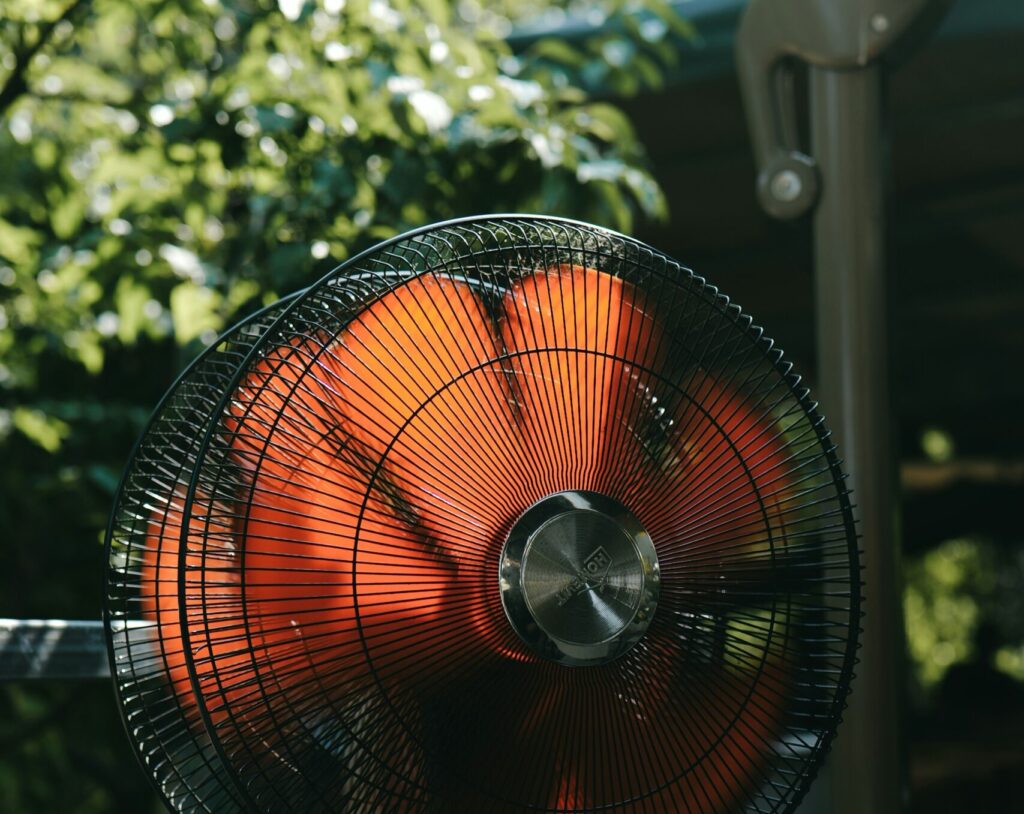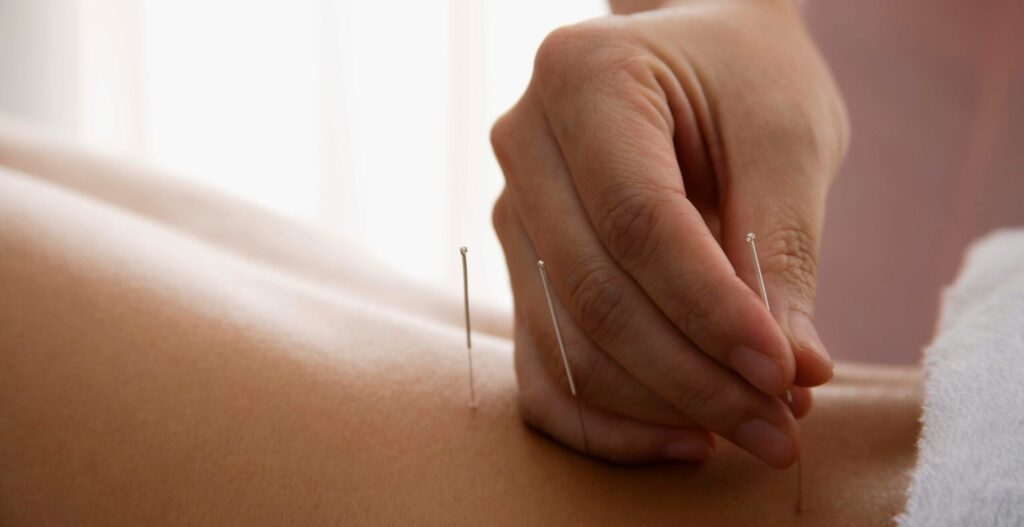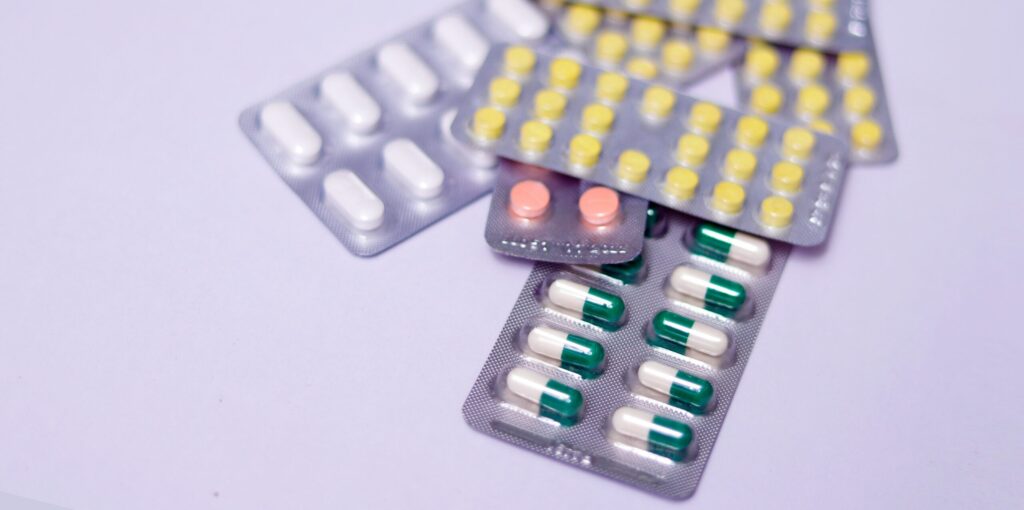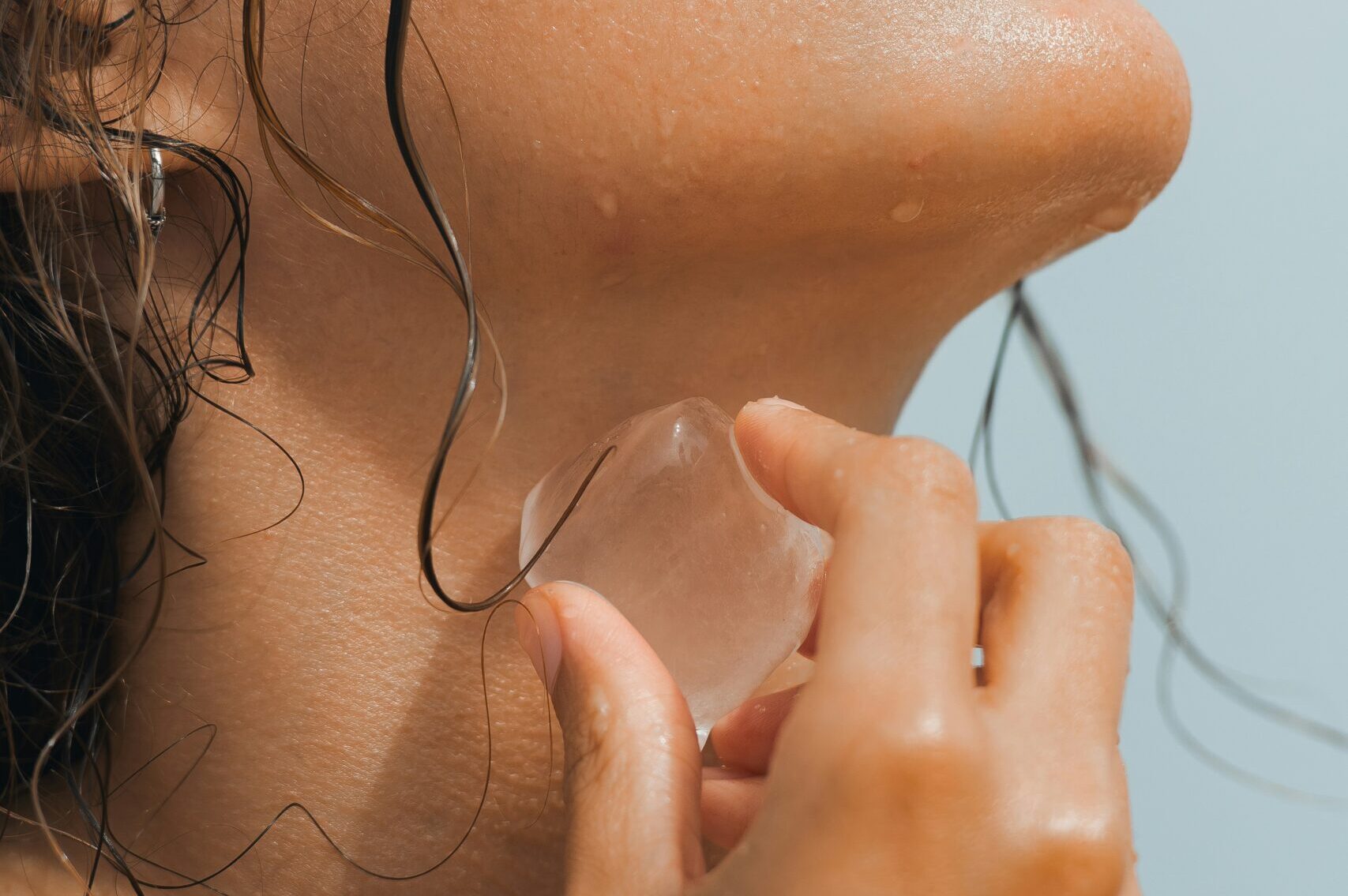As the summer heatwaves begin, many of us are turning to the beach and iced coffees or turning up the AC to stay cool. But for some, that sticky hot feeling is caused by more than just the summer heat. That’s right, we’re talking about the infamous hot flashes of perimenopause and menopause. Unlike the feeling of overheating on a hot day, hot flashes are characterized by an intense and rapidly increasing sensation of heat that may be accompanied by flushed skin, sweating, and a racing heart or sensation of anxiety. In addition to interfering with sleep, hot flashes can be incredibly disruptive to a woman’s day to day quality of life.
This post is all about those pesky hot flashes; what happens to your hormones in menopause, how this relates to hot flashes and temperature regulation, triggers and associated symptoms, and natural as well as pharmaceutical treatment options for hot flashes.

What Happens Hormonally in Menopause
Menopause is medically diagnosed when a woman has gone 12 consecutive months without a menstrual period, however, the menopausal transition – also known as perimenopause – begins long before that when hormones begin to fluctuate and menstrual irregularities begin. While the average age of menopause is 51, numerous factors can influence the age at which a person hits menopause, including but not limited to ethnicity and race, medications, diet and lifestyle factors like smoking and alcohol use, the age at which a woman has her first period (also known as menarche), and the age at which a person’s mother went through menopause.
The first signs of perimenopause (the period of time leading up to menopause when hormones begin to fluctuate) are usually changes in your period such as changes in cycle length, heavier periods, and spotting between periods. Hot flashes and night sweats also known as vasomotor symptoms of menopause (VSM) are some of the most common symptoms, hence our decision to write a whole post about them! Other symptoms associated with perimenopause include pain with sex, vaginal dryness, urinary incontinence, frequent urinary tract infections, mood changes, sleep disturbances, cognitive complaints, and musculoskeletal pain.
In order to understand why so many bothersome symptoms show up during the menopausal transition, we need to take a closer look at what’s going on hormonally. Throughout a woman’s reproductive years, estrogen and progesterone go through a predictable cycle – Estrogen levels climb in the first half of the cycle, leading up to ovulation, while progesterone takes the lead in the second half, supporting a possible implantation. During perimenopause, the ovaries begin to age and lose their responsiveness to hormonal signals from the brain, which disrupts the regular cycle of estrogen and progesterone. As ovulation becomes less consistent, there is a steady decline in progesterone and erratic estrogen levels, leading to the numerous symptoms of perimenopause and menopause.

Estrogen's Role on Temperature Regulation
So how do changes in hormones cause hot flashes? Estrogen plays a crucial role in temperature regulation by influencing how the hypothalamus (a part of the brain that acts like a thermostat) responds to temperature fluctuations. As estrogen decreases, the hypothalamus can become more sensitive to even minor increases in body temperature. This means that the brain mistakenly interprets normal temperature as an overheating situation. In response, blood vessels dilate, triggering sweating and a sudden sensation of heat as the body tries to cool down. The erratic nature of estrogen levels during this time contributes to the unpredictability and severity of these episodes. It’s also why hot flashes can happen even in a cold room or while sleeping, seemingly without any environmental cause.

Hot Flash Triggers and Associated Symptoms
Hot flashes can feel like they come out of nowhere, but certain triggers tend to make them worse. Common culprits include caffeine, alcohol (especially red wine), spicy foods, stress, and warm environments. Emotional stress and anxiety can also amplify the frequency and intensity of hot flashes, sometimes creating a vicious cycle where a hot flash causes anxiety, which in turn triggers more hot flashes.
In addition to the physical discomfort, many people experience emotional and cognitive symptoms alongside hot flashes. Mood swings, irritability, and brain fog are often reported, which may be due to a combination of hormonal changes and poor sleep quality. Night sweats in particular can severely disrupt sleep, leading to fatigue, worsened mood, and decreased concentration during the day.

Natural Solutions for Vasomotor Symptoms of Menopause
While hot flashes can at times feel unmanageable, naturopathic doctors have a host of tools available to support patients navigating this difficult transition. Here are a few of the most evidence-informed interventions in our toolbox:
Diet
- Incorporate phytoestrogens: Found in soy (tofu, edamame, soy milk), flaxseeds, and legumes, phytoestrogens may modestly reduce hot flash frequency in some individuals.
- Follow a Mediterranean diet: Rich in vegetables, fruits, whole grains, lean proteins, nuts, and healthy fats (like olive oil), consuming a mediterranean diet is associated with fewer menopausal symptoms.
- Limit triggers: Some of the most common triggers for hot flashes include red wine, coffee, and spicy food. Limiting your intake of these may help reduce hot flashes.
- Maintain steady blood sugar: Eating small, balanced meals throughout the day can help prevent blood sugar crashes, which can worsen symptoms.
Exercise
According to research, exercise may offer modest relief from vasomotor symptoms of menopause in some menopausal women. Supervised resistance training, in particular, has been shown to reduce hot flush frequency by up to 50% in those who stick with it, possibly due to changes in brain signaling and temperature regulation. However, while physical activity supports overall health, it’s not a replacement for proven treatments like hormone therapy when hot flashes are the main concern.
Botanical medicine
Naturopathic doctors receive extensive training in botanical medicine and nutrition, two modalities that can be highly effective in supporting women through the menopausal transition. Some herbs that are often times used to reduce the intensity and frequency of hot flashes include
- Red clover
- Black Cohosh
- Sage
- Evening primrose oil
- dong quai
- ginseng
- St. John’s wort
In addition to botanical approaches, supplements can be used to promote the production and metabolism of hormones contributing to hot flashes to reduce their severity and occurrence. Want to learn more? Consider booking in with one of our naturopathic doctors today!
Acupuncture
Acupuncture has been shown to help reduce the frequency and severity of vasomotor symptoms like hot flashes and night sweats in menopausal individuals. It’s believed to work by modulating the autonomic nervous system and influencing hormone-regulating pathways, which may help stabilize body temperature and improve overall well-being. In addition to easing hot flashes, many women report better sleep, reduced anxiety, and improved mood with regular acupuncture sessions.
At Friday Health, we have a number of skilled acupuncturists who can provide support for symptoms of menopause including hot flashes. Consider booking in today!

Menopause Hormone Therapy
For those whose symptoms are severe or not well-managed by lifestyle changes, menopause hormone therapy (MHT) can be an effective treatment. MHT typically involves the use of estrogen (with or without progesterone, depending on whether or not a person still has their uterus) to supplement declining hormone levels and reduce vasomotor symptoms. It’s considered the most effective treatment for hot flashes and night sweats, and has numerous other benefits as well.
However, MHT isn’t right for everyone. Factors like personal and family history of breast cancer, cardiovascular disease, and blood clots may influence whether MHT is a safe option. For those who can’t or prefer not to use hormones, a range of other tools can be used to manage hot flashes effectively ranging from nutritional interventions, botanical medicine, and other non-hormonal prescription medications.
Not sure where to start? Our naturopathic doctors are here to help! Book a discovery call today.

Disclaimer: The content provided on this blog is intended for informational purposes only and should not be construed as medical advice. While we strive to present accurate and up-to-date information, the field of naturopathic medicine is continually evolving, and individual health circumstances vary. Therefore, the information herein may not apply to your specific health situation.
Please be aware that engaging with this blog does not establish a doctor-patient relationship. For personalized medical advice, diagnoses, or treatment plans, we recommend scheduling a consultation with a qualified naturopathic physician or other licensed healthcare provider.
In the event of a medical emergency, contact emergency services immediately.
References
Befus, D., Coeytaux, R. R., Goldstein, K. M., McDuffie, J. R., Shepherd-Banigan, M., Goode, A. P., Kosinski, A., Van Noord, M. G., Adam, S. S., Masilamani, V., Nagi, A., & Williams, J. W., Jr. (2018). Management of menopause symptoms with acupuncture: An umbrella systematic review and meta-analysis. Journal of Alternative and Complementary Medicine, 24(4), 314–323. https://doi.org/10.1089/acm.2016.0408
Canadian Menopause Society. (2023). Menopause management pocket guide (2nd ed.). Canadian Menopause Society. https://www.canadianmenopausesociety.org/files/publications/English%20Pocket%20Guides_revised-FINAL.pdf
Franco, O. H., Chowdhury, R., Troup, J., et al. (2016). Use of plant-based therapies and menopausal symptoms: A systematic review and meta-analysis. JAMA, 315(23), 2554–2563. https://doi.org/10.1001/jama.2016.8012
Liu, T., Chen, S., Mielke, G. I., McCarthy, A. L., & Bailey, T. G. (2022). Effects of exercise on vasomotor symptoms in menopausal women: A systematic review and meta-analysis. Climacteric, 25(6), 552–561. https://doi.org/10.1080/13697137.2022.2097865

